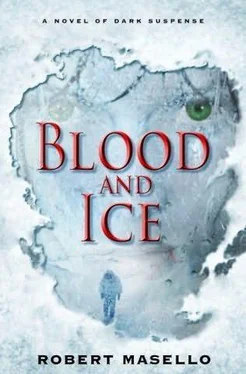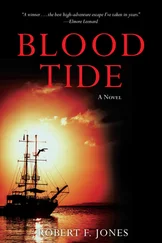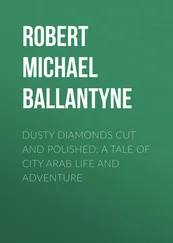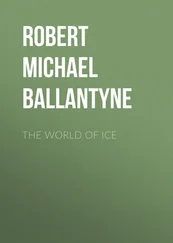Robert Masello - Blood and Ice
Здесь есть возможность читать онлайн «Robert Masello - Blood and Ice» весь текст электронной книги совершенно бесплатно (целиком полную версию без сокращений). В некоторых случаях можно слушать аудио, скачать через торрент в формате fb2 и присутствует краткое содержание. Жанр: Триллер, на английском языке. Описание произведения, (предисловие) а так же отзывы посетителей доступны на портале библиотеки ЛибКат.
- Название:Blood and Ice
- Автор:
- Жанр:
- Год:неизвестен
- ISBN:нет данных
- Рейтинг книги:3 / 5. Голосов: 1
-
Избранное:Добавить в избранное
- Отзывы:
-
Ваша оценка:
- 60
- 1
- 2
- 3
- 4
- 5
Blood and Ice: краткое содержание, описание и аннотация
Предлагаем к чтению аннотацию, описание, краткое содержание или предисловие (зависит от того, что написал сам автор книги «Blood and Ice»). Если вы не нашли необходимую информацию о книге — напишите в комментариях, мы постараемся отыскать её.
Blood and Ice — читать онлайн бесплатно полную книгу (весь текст) целиком
Ниже представлен текст книги, разбитый по страницам. Система сохранения места последней прочитанной страницы, позволяет с удобством читать онлайн бесплатно книгу «Blood and Ice», без необходимости каждый раз заново искать на чём Вы остановились. Поставьте закладку, и сможете в любой момент перейти на страницу, на которой закончили чтение.
Интервал:
Закладка:
The weeks that followed were the most miserable in Sinclair's young life. He had enlisted in the army to ride for glory and, truth be told, for the chance to parade around town in the dashing uniform of a cavalryman, but not for this-not to be imprisoned in the stinking bowels of an overcrowded ship. Not to eat cold salt pork and mealy biscuits-once you were done plucking out all the weevils, there was nothing left but a handful of crumbs-day after day, and to spend night after night in a wretched, dark hold, fighting to keep his terrified horse from dying. He thought longingly of his London life, his card games and dog fights and evenings at the Salon d'Aphrodite. (Throwing Fitzroy through the window had become the stuff of regimental legend.) When the ship's steward served him out his pitiful daily ration of rum, he thought of the fine port at the Longchamps Club, and cold champagne. When the first mate-a commoner, no less-upbraided him for smoking a cigar belowdecks, he thought of the rich humidor kept in the company barracks-not to mention the riding crop he would have liked to use on the man who had just dared to speak to him like that. The army, despite the occasional chafing he'd felt at its myriad rules and regulations, had served him well till then… but with every hour aboard the filthy, pitching vessel, something was changing in him. In his breast, he felt a growing resentment, a sense of having been cheated, misled.
He could see the spirits of his friends being dampened, too. Frenchie, once so quick to whistle a tune or make a joke, lay in his swaying hammock, green as a cricket pitch, clutching his stomach. Rutherford, ordinarily full of bluster and noise, spoke less confidently, when he spoke at all. Many of the others-Winslow, Martins, Cartwright, Mills-moved about the ship like ghosts, their faces ashen, their clothing soaked, and while the air on deck was undoubtedly fresher, there was the constant spectacle of dead horses-and increasingly men, too, who had fallen to dysentery, colic, or some other affliction-being dragged to the gunwales and tossed, like refuse from a dustbin, into the churning sea. A career in Her Majesty's navy, now that he had been able to see it so closely, was something Sinclair could not fathom.
The only one who seemed to weather it all was Sergeant Hatch, the India man who was scorned by the senior staff and officers. Sinclair knew that his fraternizing with the man made him a bit suspect, too, and Rutherford had gone so far as to warn him not to make the friendship so plain, but Sinclair found that Hatch's company anchored him in a way. Hatch had long ago accepted his lot, in life and in the army; he knew what was thought of him, what was required of him, and how to go about doing it. And while he was sufficiently cognizant of their respective stations not to seek out Sinclair, he always seemed, in his own reserved way, to be glad to see him when they did meet-especially as they were both great admirers of Captain Lewis Edward Nolan, whose theories of horse training had lately begun to be widely appreciated. What had long been done with the whip and spur, Nolan accomplished with a kind word, a soothing gesture, and a lump or two of sugar. His methods, chiefly developed in Austria where he had served under the Archduke, were making their way through the British, and reputedly even the American, cavalry, and it had been a point of honor to return him to England's own service. He was now attached to the 15th Hussars, and traveling, as were they all, into the Black Sea.
“I saw the man himself,” Sergeant Hatch observed, as he held out a handful of barley for his own charger, Abdullah. As with nearly everything else, the fleet had sailed without enough forage for the horses, so that in addition to their other torments, the animals were nearly starved. “There now,” Hatch said to his horse, as its tongue lapped his hand, desperately searching for more. He stroked its muzzle. “No more till tomorrow.”
“And was he the finest rider you've ever seen?” Sinclair asked. “I'm told that no one can hold a candle to Nolan.”
Sergeant Hatch smiled, and said, “He was only reconnoitering with Lord Raglan's aides-de-camp, so it would be difficult to say.”
Sinclair felt, as he often did with Hatch, that he sounded like a boy.
“But yes, he did have a very natural way with his horse. Almost no motion in his hands or feet, but the animal always knew what was wanted of him.”
Abdullah stretched his lean neck out and nudged Hatch on his shoulder, hard, and Hatch stepped back. “Maybe we ought to go up,” he said, uncharacteristically. “If we stay down here, the poor thing will try to eat my epaulettes.” He said it as if it were a joke, but they both knew that it was not.
As they clambered up on deck, they had to step over the bodies of several feverish soldiers-the infirmary such as it was, had long ago been filled-and they heard a splash as another body, in a canvas shroud, was heaved overboard. When the first casualties of the journey had been consigned to the deep, the Dead March in Saul had been played by a few members of the military band. But once the numbers had grown, and the burials at sea had become such a commonplace event, the officers had curtailed that practice. As Sinclair had overheard the ship's captain confide to an aide, “Morale is low enough already, and I shall go mad if I hear that damned tune again.”
Hatch and Sinclair found a few square feet of deck, where they could sit with their backs against a mast while Hatch filled his pipe with a sweet-smelling tobacco he'd become accustomed to in India. Winslow sauntered past and gave Sinclair an odd look. Sinclair glared back.
Hatch noted the exchange, and said, “You do yourself no favor, Lieutenant, consorting with the likes of me.”
“I'll consort with whomever I please.”
Hatch lit his pipe. “They don't like to be reminded.”
“Of what?”
“That they have not been blooded yet.” He took a puff on the pipe, and the strange aroma of the weed wafted into the air. “And, I suppose, of Chillianwallah.”
Even Sinclair had not known that Sergeant Hatch had served in that battle-one of the British cavalry's worst disasters. From the scandalous reports that circulated at the time, a brigade of light cavalry had advanced, without taking the precaution of sending skirmishers out to scout the terrain, against a powerful Sikh army in the foothills of the Himalayas. Suddenly confronted by a formidable array of enemy horsemen, the squadrons in the center of the front line had either balked, or received orders to retreat-it was never clear-and wheeled around, only to collide with the ranks behind them. The Sikhs, famous for taking no quarter, raised their razor-sharp kirpans and charged. In the general confusion that embroiled the British forces, two British regiments, and their Bengali counterparts, turned tail and fled, overrunning their own gun batteries at the rear, and sacrificing, along with hundreds of lives, three regimental colors. Though the action was five years in the past, the memory of it smarted still.
“That's why I keep this under my shirt,” Hatch said, lifting a chain from which dangled a silver military medal stamped PUNJAB CAMPAIGN, 1848-9. He dropped it back out of sight. “Every man who survived that day is looking for the chance to redeem himself.”
There was a cry from the crow's nest, carried down to them on the wind, which was picked up and echoed by several of the naval officers on deck. Sinclair and Hatch quickly got up and went to the starboard rail; the men who could stand were jostling for elbow room as a hazy mist over the water dissipated, revealing the rolling shoreline of the Crimea, and a flotilla of British ships that had already arrived and anchored there. As the Henry Wilson furled its topgallants and royal sails, and glided into the tranquil waters, Sinclair could hear the occasional bugle call in the distance and see the glitter of weaponry on the beach; the disembarkation had already begun, and Sinclair felt a quickening of his own blood. From what he could discern on the cliffs above, the Crimea was a land of vast, gently undulating steppes, devoid of trees or shrub, and consequently ideal for cavalry maneuvers. He longed to bring Ajax up out of the hold and let him graze on the pastures there and run free on the seemingly serene hills.
Читать дальшеИнтервал:
Закладка:
Похожие книги на «Blood and Ice»
Представляем Вашему вниманию похожие книги на «Blood and Ice» списком для выбора. Мы отобрали схожую по названию и смыслу литературу в надежде предоставить читателям больше вариантов отыскать новые, интересные, ещё непрочитанные произведения.
Обсуждение, отзывы о книге «Blood and Ice» и просто собственные мнения читателей. Оставьте ваши комментарии, напишите, что Вы думаете о произведении, его смысле или главных героях. Укажите что конкретно понравилось, а что нет, и почему Вы так считаете.












